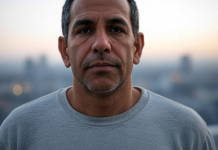Conservatives in the United States are significantly influencing a “civics revolution” by reviving and reshaping traditional education, particularly in how civics is taught from kindergarten through university levels.
This movement is characterized by a push to restore the study of founding American principles, the Constitution, original historical documents, and foundational texts while moving away from some recent progressive approaches to history and social studies.
Key Elements of the Civics Revolution
Universities are opening new civics schools with dedicated deans and doctoral programs. Notably, at least 13 public universities have civics schools influenced by organizations like the Jack Miller Center, which train educators in history and government fundamentals.
Over half of U.S. states now require civics education or competency tests in K-12 schools, with 28 states adopting policies like civics course requirements, assessment tests, and professional development for teachers in civics.
Conservative nonprofit organizations, such as Hillsdale College and Turning Point USA, are actively collaborating with the Department of Education and other institutions to promote patriotism, foundational values, and shared civic knowledge through curriculum and events. A recent example is the America 250 Civics Education Coalition, managed by the Department of Education and led by conservative nonprofits.
Approach and Philosophy
Many conservative advocates prefer primary sources — like the Federalist Papers, Supreme Court decisions, and key presidential speeches — rather than relying on interpretative textbooks, to avoid ideological filtering.
The movement emphasizes a sense of national pride and the “sacred obligation” of understanding America’s founding ideals, often positioning this in contrast to curricula that foreground systemic critiques of American history.
Context and Political Debate
The civics revival is not without controversy. Progressive educators continue to introduce materials focusing on themes of resistance, social justice, and systemic critique, such as the 1619 Project and Black Lives Matter at School. Conservatives often characterize these initiatives as overemphasizing America’s flaws.
Since the federal government’s direct role is limited, most activity is happening at the state and local level, with significant funding coming from conservative philanthropic foundations.
Recent Drivers
Recent events, such as the assassination of Turning Point USA’s Charlie Kirk, have catalyzed further conservative mobilization around civics education, with new organizational efforts and high-profile support for increased civics instruction nationwide.
Despite its traditionalist roots, the movement is also adapting content for present-day relevance, addressing issues like immigration and civic engagement in the digital age.
In summary, the civics revolution led by conservatives is having a broad and growing impact on American education, placing renewed emphasis on foundational documents, principles of citizenship, and patriotic education — while navigating intense political battles over the nation’s identity and history in education.







